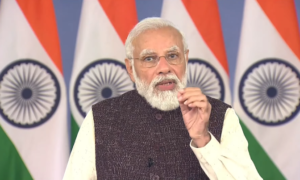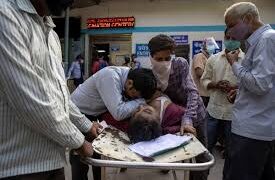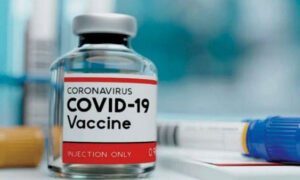Researchers are racing against time to find treatments and vaccines for the coronavirus disease (Covid-19), which has affected more than 5.5 million and killed 338,249 people across the world.
They are also studying how the virus affects the body and its various organs as it is still spreading across the world. The World Health Organization (WHO) said on Friday that South America has become a new epicentre of the Covid-19 pandemic with Brazil hardest-hit, while cases are rising in some African countries that so far have a relatively low death toll.
There are about a dozen experimental Covid-19 vaccines in early stages of human testing or poised to start, mostly in China, the US and Europe.
Here is the latest about what has happened in laboratories:
CanSino’s vaccine shows promise
A experimental Covid-19 vaccine developed by CanSino Biologics Inc, one of the front-runners in the race to come up with a shot to help end the pandemic, appears to be safe and generated a rapid immune response in its first human trial, Chinese researchers reported on Friday in The Lancet medical journal.
First-in-human studies, known as Phase I trials, are primarily designed to test safety.
This vaccine did not cause any serious adverse effects, the researchers say, though they did report some side effects such as fever. Furthermore, blood samples from the 108 vaccinated adults showed so-called neutralizing antibodies and T-cell responses against the novel coronavirus, a sign of possible efficacy.
“These results represent an important milestone,” coauthor Professor Wei Chen from the Beijing Institute of Biotechnology said in a statement.
“The ability to trigger these immune responses does not necessarily indicate that the vaccine will protect humans from Covid-19. We are still a long way from this vaccine being available to all,” the researcher added.
Further studies will be needed to confirm whether the vaccine protects against infection.
The first such trial is underway in Wuhan, China.
Oxford trial progressing ‘very well’
Developers of a vaccine at the University of Oxford described their efforts as progressing “very well”, moving to the next phase after completing 1,000 immunisations by its candidate-vaccine on healthy human adults.
This came days after reports said that a promising Covid-19 vaccine being developed by the Oxford Vaccine Group showed limited success on monkeys but could fail to prevent transmission of the virus.
The human trials were first initiated in April. The next phase, the second in the typical three phases of trials that a vaccine goes through, involves enrolling up to 10,260 adults and children to assess the immune response to the vaccine in people of different ages and assess if there is a variation.
The Oxford study is merging Phases II and III for speedier development. Phase III involves assessing how the vaccine works in a large number of people over the age of 18, and how well it prevents people from becoming infected and unwell with Covid-19.
HCQ tied to higher death risk
The anti-malarial drug hydroxychloroquine was tied to an increased risk of death in an observational study of more than 96,000 Covid-19 patients at 671 hospitals on six continents, researchers reported on Friday.
According to their paper in The Lancet, it was not clear whether taking the drug provided patients with any benefit.
There were 14,888 patients who received hydroxychloroquine or chloroquine, with or without an antibiotic, and 81,144 did not receive those drugs. Randomized placebo-controlled studies are needed to clarify the risks and benefits of the decades-old drug in the treatment of Covid-19, the researchers said. Many such trials are underway.
The University of Minnesota may have some results next week, from two studies testing whether hydroxychloroquine is useful for preventing infection in people exposed to the virus and whether it alleviates Covid-19 symptoms.
Other placebo-controlled trial results are expected to start later this summer.
Blood vessel damage
A study published on Thursday in The New England Journal of Medicine helps explain why blood clots develop more often in Covid-19 patients. It appears that the virus can severely damage patients’ blood vessels, causing the blood to clot as it flows past.
Researchers found damage to tiny air sacs in the lung called alveoli in studies of lungs from seven patients who died of Covid-19.
They also found severe injury to blood vessel linings, which was associated with the virus in the cells of blood vessels and disrupted cell membranes. Compared with the lungs of patients who died of influenza, the Covid-19 lungs had far more extensive injuries.
In addition, the healing reaction – a process of new vessel growth called intussusceptive angiogenesis – was 30 times higher than normal in the Covid-19 lungs, study co-author Dr William Li, medical director of the Angiogenesis Foundation, said in a statement.
All of these factors contribute to blood clots, his team reports.
“One of the great mysteries of Covid-19 has been why blood clots, or thromboses, form in some patients,” Li said.
“These clots can become lethal because they severely compromise blood flow not only in the lungs but also in other organs such as the brain and heart, among other tissues. Our research is the first to show that these clots are associated with damaged blood vessels.”
Simulated sunlight
Simulated sunlight rapidly inactivates the coronavirus on non-porous surfaces like stainless steel, according to researchers from the US department of homeland security science and technology directorate’s National Biodefense Analysis and Countermeasures Center (NBACC).
“These results suggest that natural sunlight may be effective for significantly reducing the amount of virus on exposed surfaces, such as mailboxes, playground equipment, and shopping carts left outdoors in the sunlight,” a spokesperson for the researchers told Reuters.
While significant reductions of the virus were observed after just a few minutes of simulated sunlight, the risk of exposure from contact with surfaces may not be fully eliminated, the researchers cautioned in the Journal of Infectious Diseases.
More research is needed on how much virus is shed onto surfaces from infected individuals, how easily the virus is transferred from surfaces, and what amount is needed to cause infection.
Hold off on blanket ‘DNR’ orders
In the desperate early days of the coronavirus pandemic, reports from China that few critically ill Covid-19 patients could be revived after a cardiac arrest led doctors in some countries to consider issuing blanket “Do Not Resuscitate” orders.
But for US Covid-19 patients, at least, that would not be appropriate, researchers said.
Researchers wrote in a paper published on Friday in Circulation: Cardiovascular Quality and Outcomes, an American Heart Association journal, that adequate data is not yet available on US survival rates for in-hospital resuscitation of Covid-19 patients and the Chinese data may not be applicable.
“Early experience of the pandemic in the US reveals that about a quarter of Covid-19 patients are younger than 50 years of age and otherwise healthy. Cardiac arrest in such patients will likely have a different prognosis” than it would in older patients, researchers said.
The study authors are members of the American Heart Association “Get With The Guidelines” Resuscitation Investigators panel.




























 WhatsApp us
WhatsApp us
Pingback: สล็อตแตกง่าย
Pingback: sig p320